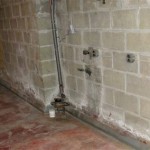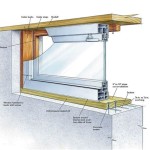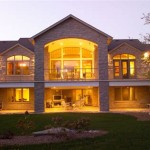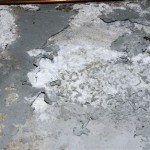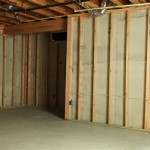What Is Best for Basement Flooring Over Concrete?
Selecting the optimal flooring solution for a basement over concrete requires careful consideration of several factors. Unlike above-ground floors, basements often present unique challenges related to moisture, temperature fluctuations, and potential for flooding. Therefore, the best flooring option must not only be aesthetically pleasing and comfortable but also durable, moisture-resistant, and capable of withstanding the specific conditions prevalent in below-ground environments. This article will explore various flooring materials commonly used in basements, analyzing their advantages and disadvantages in relation to concrete subfloors.
Concrete basements, while structurally sound, are naturally porous and can wick moisture from the ground. This moisture, if left unchecked, can lead to mold growth, damage to flooring materials, and an uncomfortable living environment. Furthermore, concrete tends to be cold, which can negatively impact the overall comfort of the basement. Therefore, any flooring installed over concrete must address these issues to ensure a long-lasting and healthy living space.
Moisture Resistance is Paramount
The primary concern when selecting basement flooring is its ability to withstand moisture. Concrete, being porous, allows moisture to permeate from the ground and through the concrete itself. This moisture can lead to mold growth, mildew, and degradation of flooring materials. Failing to address moisture issues can result in costly repairs and health problems. Therefore, selecting a flooring option with inherent moisture resistance or implementing a proper moisture barrier is crucial.
Several flooring options are inherently more water-resistant than others. For example, ceramic and porcelain tile are virtually impervious to water, making them excellent choices for basements prone to moisture. Luxury Vinyl Tile (LVT) and Luxury Vinyl Plank (LVP) are also popular options due to their waterproof nature and realistic appearance. These materials are specifically designed to handle moisture and are less likely to warp, buckle, or support mold growth compared to more absorbent materials like carpet or hardwood.
However, even with water-resistant flooring, it's often advisable to implement a moisture barrier beneath the flooring material. This barrier can consist of a plastic sheeting (such as polyethylene) or a specialized underlayment designed to prevent moisture migration. The moisture barrier should be properly installed, ensuring all seams are sealed and it extends up the walls slightly to prevent water from seeping in at the perimeter. This added layer of protection can significantly extend the lifespan of the flooring and protect the basement from moisture-related issues.
Conversely, certain flooring types should be avoided or used with extreme caution in basements due to their susceptibility to moisture damage. Solid hardwood flooring, for instance, is highly susceptible to warping, cupping, and rot when exposed to moisture. Similarly, traditional laminate flooring, while often less expensive than LVT, can absorb moisture and swell, leading to delamination and eventual failure. If these materials are desired, extensive moisture mitigation strategies are required, often involving significant additional costs and effort.
The effectiveness of any moisture mitigation strategy depends on the severity of the moisture problem in the basement. If the basement experiences frequent flooding or demonstrates high levels of humidity, professional assessment and remediation may be necessary before installing any flooring. This may involve addressing drainage issues, installing a sump pump, or applying a waterproof coating to the concrete floor.
Comfort and Insulation
Beyond moisture resistance, the comfort and insulation properties of basement flooring are also important considerations. Concrete floors tend to be cold, which can make the basement uncomfortable, especially during colder months. Therefore, selecting flooring that provides some level of insulation or can be easily warmed is desirable.
Carpet is one of the most popular choices for adding warmth and comfort to a basement floor. However, as previously mentioned, carpet is susceptible to moisture damage and mold growth. To mitigate this risk, consider using carpet tiles instead of wall-to-wall carpeting. Carpet tiles can be easily replaced if they become damaged or wet, and they allow for better airflow underneath, reducing the risk of mold growth. Furthermore, selecting a low-pile carpet with a synthetic fiber can improve its moisture resistance compared to natural fibers like wool.
Another option for adding warmth is to install an underlayment beneath the flooring. Underlayments come in various materials, including foam, cork, and rubber. These materials provide a layer of insulation between the concrete floor and the flooring material, making the floor warmer and more comfortable to walk on. Underlayments can also help to absorb sound, making the basement quieter.
Radiant floor heating is another increasingly popular option for heating basement floors. This system involves embedding heating cables or tubes within the concrete slab or under the flooring material. Radiant floor heating provides even and consistent warmth throughout the basement, eliminating cold spots. While the initial installation cost is higher than other heating options, radiant floor heating can be more energy-efficient in the long run.
The choice of flooring can also impact the perceived comfort of the basement. Materials like LVT and cork are warmer to the touch than ceramic or porcelain tile. Similarly, softer flooring options like engineered wood or rubber can provide a more comfortable surface for walking or standing.
Durability and Maintenance
The durability and maintenance requirements of basement flooring are equally important. Basements often serve as recreation areas, home offices, or workshops, which can subject the flooring to heavy foot traffic, spills, and potential damage. Therefore, selecting a flooring material that is durable, easy to clean, and resistant to staining is essential.
Ceramic and porcelain tile are renowned for their durability and resistance to scratches, stains, and water damage. These materials are ideal for high-traffic areas and are easy to clean with common household cleaners. However, tile can be cold and hard, which may not be ideal for all basements. Grout lines can also be susceptible to staining and require regular cleaning and sealing.
LVT and LVP are also durable and easy to maintain. These materials are resistant to scratches, dents, and water damage, making them suitable for basements used for various purposes. LVT and LVP are also easy to clean and require minimal maintenance. They are available in a wide range of styles and colors, mimicking the look of wood, stone, and tile.
Epoxy coatings are another durable and low-maintenance option for basement floors. Epoxy is a resin that is applied to the concrete floor, creating a seamless and durable surface. Epoxy coatings are resistant to stains, chemicals, and abrasion, making them ideal for workshops and garages. They are also easy to clean and maintain. However, epoxy coatings can be slippery when wet, so it's important to choose a coating with a non-slip texture.
The expected use of the basement should heavily influence the choice of flooring. A basement used primarily as a home office may benefit from a more comfortable and aesthetically pleasing option like LVT or carpet, while a basement used as a workshop or utility room may benefit from a more durable and practical option like epoxy or tile.
Ultimately, the best flooring for a basement over concrete depends on a variety of factors, including the budget, the intended use of the basement, the existing moisture conditions, and personal preferences. Careful consideration of these factors will help ensure that the selected flooring material is durable, comfortable, and long-lasting.

What Is The Best Flooring To Put On A Concrete Basement Floor

What Are The Best Flooring For Basement In Homes

6 Inspiring Ideas For Basement Flooring In Portland

Best Basement Flooring The Warmest Floor Covering Is Cork

Best Flooring For Basement Renovations

How To Choose The Right Floor For Your Basement Gc Flooring Pros

What Is The Best Flooring For A Concrete Floor Basement Illinado Llc

What Is The Best Flooring For Basements Get Pros And Cons

Thermaldry Basement Flooring Systems Waterproof

Best Basement Flooring Systems Over Concrete Options And Ideas
Related Posts
